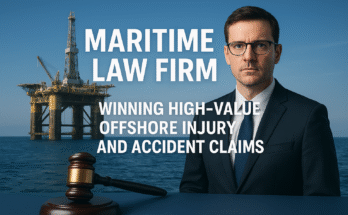Why You Need a Car Accident Insurance Lawyer
Every year, millions of Americans are involved in car accidents. Insurance companies often aim to minimize payouts, leaving victims with medical bills, lost wages, and property damage. The best car accident insurance lawyer helps victims protect their rights, negotiate with insurers, and secure the maximum compensation possible.
What Does a Car Accident Insurance Lawyer Do?
An experienced lawyer plays a critical role in building a strong case, including:
- Investigating the accident and collecting evidence.
- Reviewing police reports and medical records.
- Negotiating directly with insurance adjusters.
- Filing lawsuits when fair settlements are denied.
- Representing clients in court to maximize compensation.
Types of Insurance Claims After a Car Accident
Depending on the circumstances, a victim may file multiple types of insurance claims, such as:
- Personal Injury Protection (PIP) – Covers medical bills and lost income regardless of fault.
- Liability Insurance – Pays for damages caused by the at-fault driver.
- Uninsured/Underinsured Motorist Coverage – Protects victims when the other driver has little or no coverage.
- Property Damage Claims – Compensation for repairing or replacing your vehicle.
Compensation You May Be Entitled To
The best car accident insurance attorneys fight to recover damages such as:
- Medical bills and ongoing healthcare costs.
- Lost wages and reduced earning capacity.
- Pain and suffering, emotional distress, and trauma.
- Vehicle repair or replacement costs.
- Punitive damages in cases of extreme negligence.
Why Insurance Companies Try to Pay Less
Insurance companies are for-profit businesses. Adjusters are trained to minimize settlements and may use tactics such as:
- Delaying claim responses.
- Denying valid claims without explanation.
- Pressuring victims to accept low settlements quickly.
- Arguing that injuries were pre-existing or not accident-related.
A skilled lawyer can counter these strategies with strong evidence and negotiation tactics.
Steps to Take After a Car Accident
- Call 911 and report the accident.
- Seek medical attention immediately.
- Take photos of the accident scene, vehicles, and injuries.
- Gather witness statements and contact information.
- Contact a car accident insurance lawyer before speaking with insurers.
How to Choose the Best Car Accident Insurance Lawyer
When selecting legal representation, consider these factors:
- Experience – Specialization in personal injury and auto accident cases.
- Reputation – Client reviews and proven success with high settlements.
- Resources – Ability to hire experts and investigate thoroughly.
- No Upfront Fees – Most work on contingency, meaning no fees unless you win.
High-Value Car Accident Settlements
Some real-life settlements handled by top attorneys include:
- $2.2 million for a victim of a drunk driving accident.
- $1.5 million for a pedestrian hit by a negligent driver.
- $3 million settlement for spinal injury victims in a rear-end collision.
These cases show the importance of having strong legal representation.
Frequently Asked Questions (FAQs)
How much does a car accident insurance lawyer cost?
Most work on contingency fees, meaning they only get paid if you win your case.
How long does it take to settle a car accident claim?
It can take weeks to several months, depending on the complexity and whether the insurer negotiates fairly.
Do I need a lawyer for a minor accident?
If injuries or damages are minimal, you may not need one. But for medical expenses and long-term damages, hiring an attorney is highly recommended.
Conclusion
A car accident insurance lawyer is essential for protecting your financial future after a crash. Insurance companies often undervalue claims, but with the right legal help, you can secure a fair settlement that covers all your losses. Don’t let insurers take advantage of you—consult the best car accident insurance lawyer today to maximize your compensation.
Disclaimer: This article is for informational purposes only and does not constitute legal advice. Please consult a licensed attorney for case-specific guidance.



